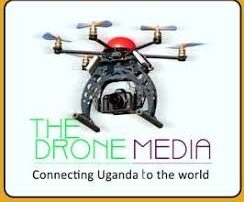Guards in Iraq & Afghanistan get insurance money
Ugandans who worked in Iraq & Afghanistan as Security Guards under the Government of United States of America, are required to apply freely for their insurance compensation.
The Drone Media has established that some humanitarian lawyers dug out a syndicated corruption that made former security guards in Iraq & Afghanistan lose millions of money. This money is an equivalent of local National Social Security Fund (NSSF).
As it is, every security guard who worked in Iraq & Afghanistan under the government of United States of America, was being deducted or given money for their insurance compensation. However, the companies that took the guards chose to steal the money. As rumour would sweep in and some guards start inquiring about this money; the companies would severely deal with such individual until the rumours would die.
Now, after all these years. The American humanitarian lawyers, seeking for self actualization, as part of hierarchy in life; they started investigations to find out many things that happened in Iraq & Afghanistan during the wars in those countries. The lawyers were surprised to find out that the companies did not pay the guards their insurance compensations.
Private security firms won lucrative contracts to supply support staff and security guards to back up US forces in Iraq. They recruited Ugandans and pushed them to the limit, on low pay and no benefits. These included: Drashak Security Solutions; Watertight, Askar etc
White recruits — from the US, Israel, South Africa, the UK, France and Serbia — hired by American private military company PMCs that won contracts with the Pentagon (worth $120bn since 2003) received substantial pay, often more than $10,000 a month; but “third country nationals” (TCNs) like many Ugandans were treated badly and their rights as employees were abused. Some, were sent home after being wounded, got no help from their former employers.
Some, especially African recruits, were assigned to security duties, paired up with regular troops: 15% of the static security personnel (guarding base entrances and perimeters) hired by the PMCs on behalf of the Pentagon were Sub-Saharans.

Among these low-cost guards, Ugandans were a majority, numbering maybe 20,000. They were sometimes used to keep their colleagues in line: in May 2010 they quelled a riot at Camp Liberty by a thousand TCNs from the Indian subcontinent.
The high ratio of Ugandans was due to the political situation in central Africa in the early 2000s. In western Uganda the war in the Great Lakes region was officially over. In northern Uganda the Lord’s Resistance Army rebels had been brought under control.
In neighbouring Sudan the civil war was over, opening up the way to independence for the south. More than 60,000 Ugandan troops were demobilized; Iraq seemed like an opportunity. The Ugandan government, a key ally of the US in central Africa, was one of the few to support the Bush administration when the Iraq war began in 2003. US and Ugandan armed forces have collaborated since the mid-1980s.
In 2005 the US needed more paramilitary security — “They were looking for reliable labour from English-speaking countries, veteran labour” — and turned to Uganda.
With this background, the former guards are rightly claiming their insurance compensation from the Ugandan Private Security companies that hired them.
